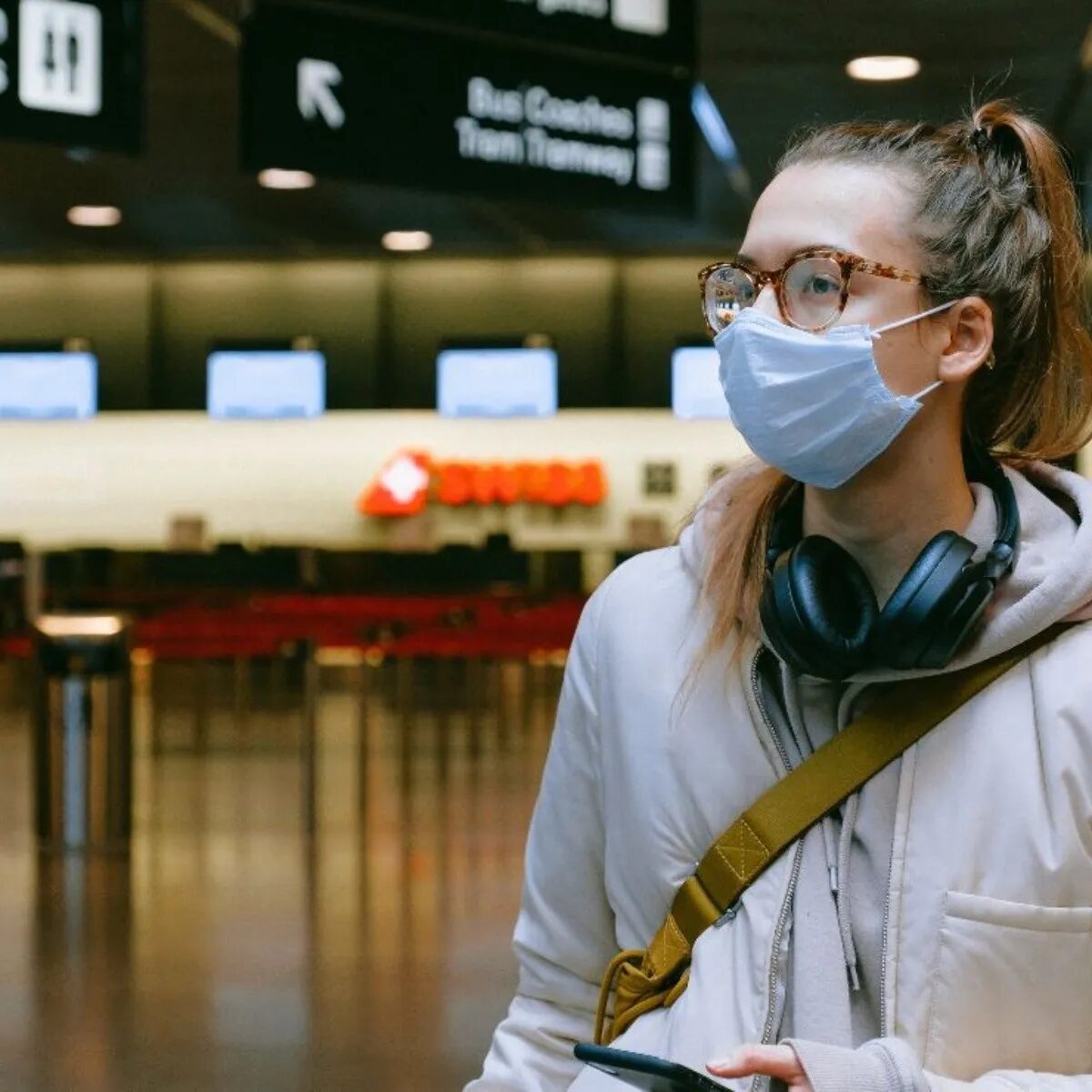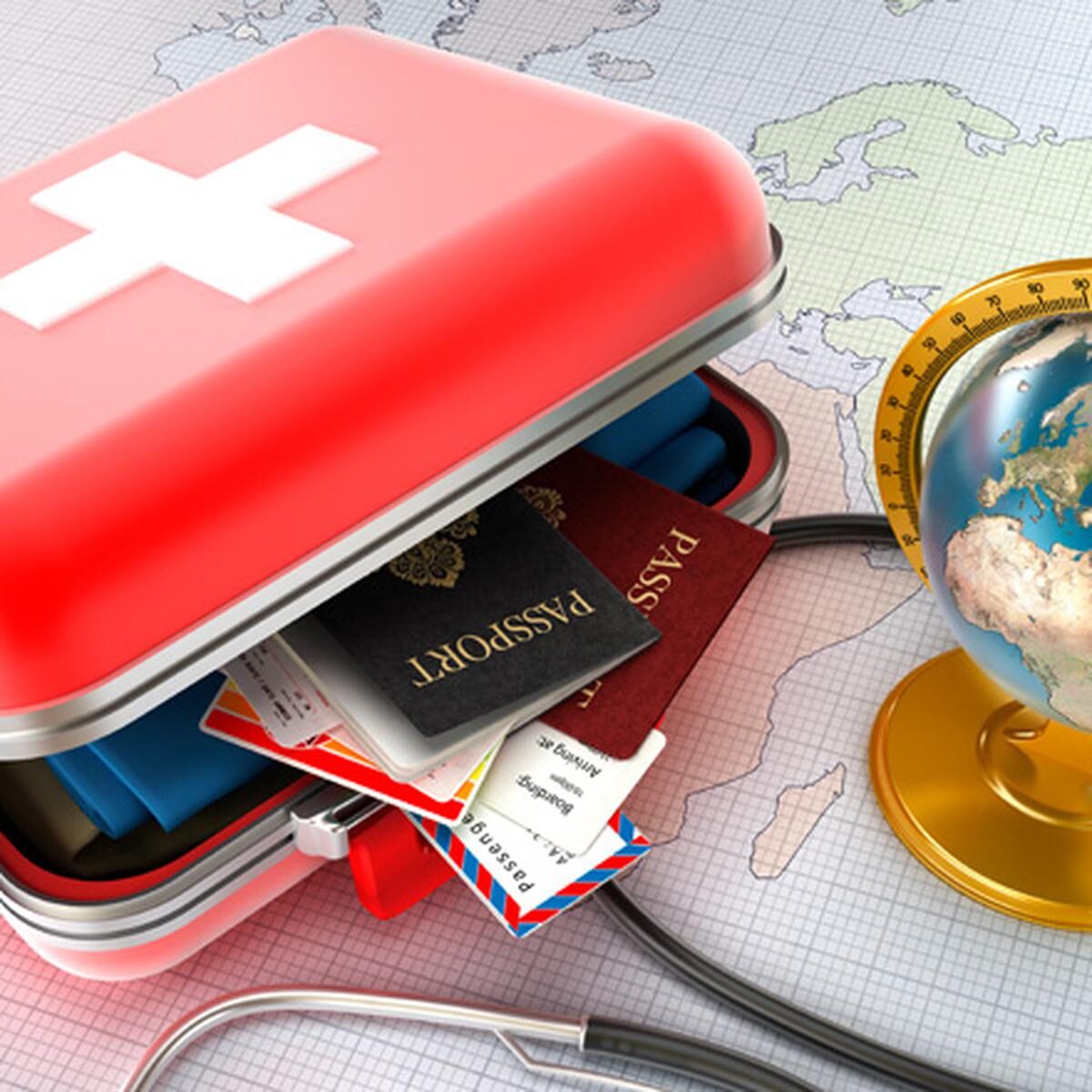Vital health precautions for traveling

Getting the respective vaccines are not the only health precautions to take when traveling. A good traveler always anticipates anything that could disturb his experience and equips himself for all circumstances.
When traveling, whether alone or with the family, there are many uncomfortable complications that can end up hindering our enjoyment. That is why it is good to know some health tips that are easy to apply and that you can include in your list of things when organizing your luggage.
Here you will discover everything you need in terms of health to make a safe and protected trip in the face of any unexpected event.
How to take care of my health if I go on a trip?

Some trips are unexpected and unexpected, and there is no time to prepare too much, but they are enjoyed and planned on the fly, but this is not always the case. If we are one of the travelers who prepare our adventures in advance, let's take into account the following:
1. Headache and nausea
The headache, like nausea, can appear out of nowhere, an aroma, stress, a delay or the hectic of a transport, any of these causes triggers them. These are two simple complications, but they can quickly ruin your experience.
When traveling, do not forget to carry aspirin on hand and, if possible, also some pills that will help you control nausea or vomiting. Just as it never hurts to have a hermetic bag that will serve you in an emergency, especially if you travel with children.
2. Get a pre-trip checkup
Just as we check the tires, fuel and oil of our cars before leaving on a trip, we should do the same with our bodies.
Carrying out a check -up prevents us from detecting it before traveling if we have any unstated complications.
It is much better to treat any pathology that appears suddenly, being in your own country, with your trusted doctor, and not being forced in the middle of the trip to go to other places that you do not know.
3. Study the place where you are going
We all know what our physical condition is and what seasons we are sensitive to, so studying the climate of our destination is essential. From colds to blood pressure problems, they can surprise us, if we do not know the type of weather we are going to.
It is always good to do a preliminary study of the place we are going to visit and that this goes far beyond looking at the photos promoted by travel agencies. The details make the difference and the climate of a place determines whether our stay will be positive or not.
4. Find out about medical care points
Whether or not you suffer from any pathology, it will always be good to know which are the closest hospitals or clinics to the place where you are going. Accidents happen without warning, so it is very useful to know where is the best option to go in case it is required.
Thanks to technology you do not need to be at your destination to know this information, a simple online search will suffice and you will know everything you need. This is part of the precaution and you should do it even more if you do not master the language of the point you are going to.
5. Report your pathologies
If you travel alone and suffer from any pathology, it is recommended that you have at hand an explanatory letter detailing what you suffer from and the contact of the doctor who treats you. It's also good to include medications that you are intolerant to.
This may seem extreme, but there may be a scenario where you cannot explain your condition yourself or where you lose consciousness. Doctors in cases like this always review any information that the patient is carrying and coming across this is very useful.
6. Give yourself time
Whether you travel for business or pleasure, the healthiest thing is to take some time off when you arrive at your destination, this will prevent you from getting physically worn out. The time change, the weather and the pace of the place can be overwhelming if they are approached unexpectedly.
It is always best to arrive a day in advance if you are going to a specific event.
If you travel with free time to enjoy, take a rest space before going out to know, thus you avoid that your body and your energy are compromised.
7. Be careful what you consume
One of the most enriching experiences on a trip is to try its gastronomy, but be sure to check what each dish contains. There are countries where they are very given to the use of condiments or spices and some of these can alter us.
If you suffer from allergies or sensitivities to some foods or drinks, always check how the dish or food you want to try is made up. This way you will avoid a bad episode of intoxication or some undesirable reaction.
8. Take into account the sea level
If you have any heart failure, you should know what the altitude is in terms of sea level, of the place you are going to. The altitude can be a problem for cardiovascular function and some sites are not the most suitable for any tourist.
Normally, places that are at sea level are ideal for good respiratory and cardiac function. But there are special cases where the opposite occurs and at a lower altitude respiratory and cardiac discomfort appears.
9. Health at hand
Any implement or medicine that travels with you to take care of your health must be in your hand luggage. Lost or stolen luggage often happens and it would be a big problem, if some much-needed medicine or gadget gets lost.
Traveling and knowing is one of the best experiences that anyone can enjoy in this life, but you must always be clear that travel is full of surprises. Taking care of yourself and being cautious means that you can enjoy more and continue discovering new horizons.
